The Education Foundation awarded six Public School Proud Grants at R. F. Pettigrew Elementary earlier this week, investing $19,859.99 in their teachers and students. Heidi Reynolds received $9,970 for her grant, “Renewing Our Mindsets.” Students and staff focus on seven key themes: Everything Is Possible, Passion First, We Are Connected, 100 Percent Accountable, Attitude of Gratitude, Live to Give, and The Time Is Now. In her application, Heidi wrote, “We must address the needs of students who are feeling the effects of quarantine and interrupted education during the pandemic. After implementing the 7 Mindsets, 94 percent of classroom teachers believe the curriculum has been making a positive impact on their students. Every teacher reported that their students are engaged in the weekly lessons. Parents were surveyed, and 86 percent believe the 7 Mindsets are having a positive impact on their child. When asked about implementing year two of the 7 Mindsets curriculum, 97 percent of classroom teachers and 100 percent of parents wanted to continue with the program.” Students and staff incorporate these seven themes into their classwork and daily life, and they will continue to expand these lessons in the upcoming year.
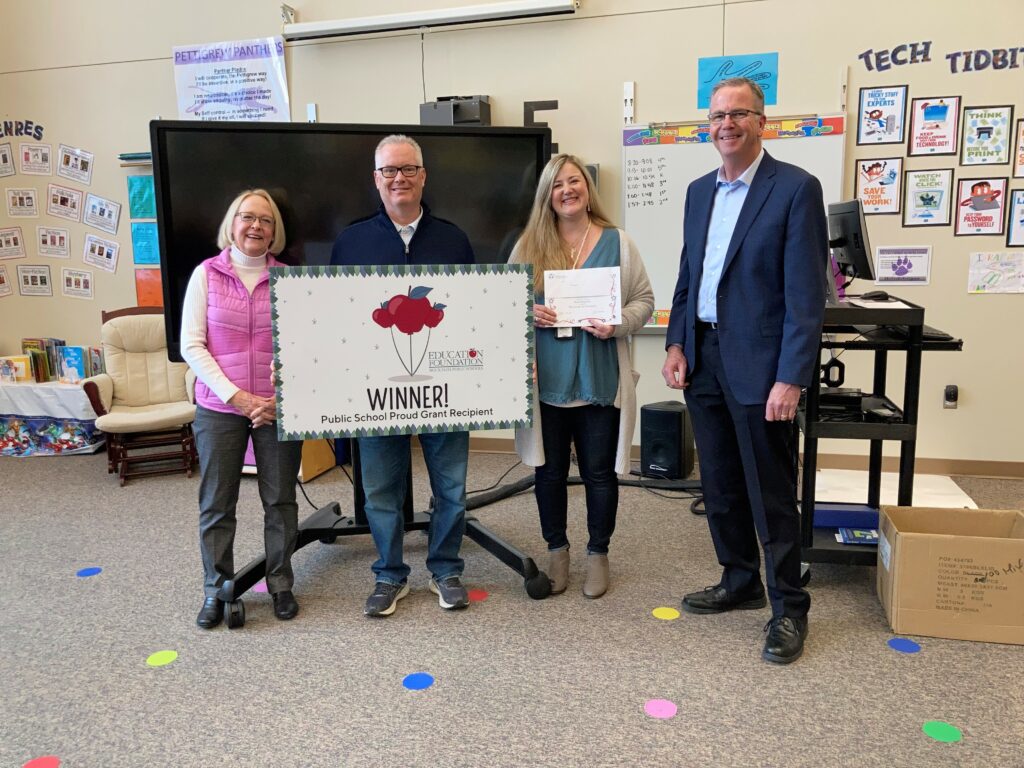
We awarded Christina Godshall $3,725 for her grant, “Mystery Science Innovation.” She will purchase a school-wide subscription and six science kits for the classroom. Students will explore insulation activities, erosion demonstrations, engineering projects, and map the earth’s surface.
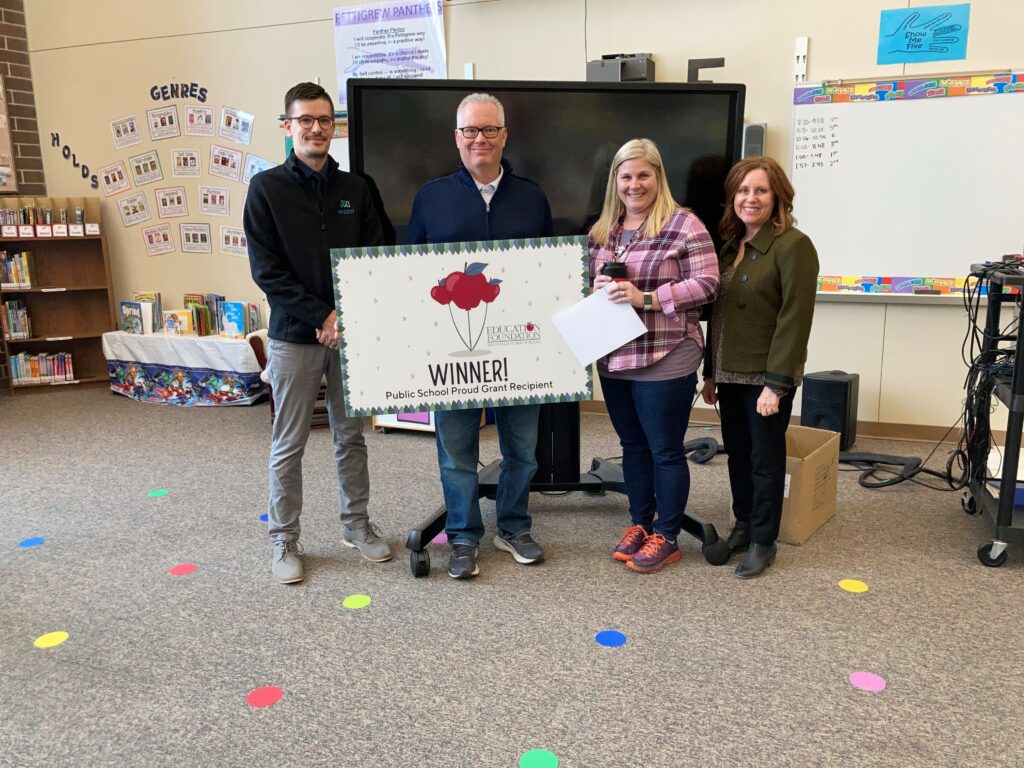
Lauren Rhoda and Rhonda Begley received $1,455 for their grant, “Frac-Tools.” More than 150 fourth graders will have access to math manipulatives. Fractions can be abstract and confusing for students. These tools help students construct an understanding of ideas that they can then connect back to math practices on paper. Having physical evidence of how their thinking works can build confidence and understanding.
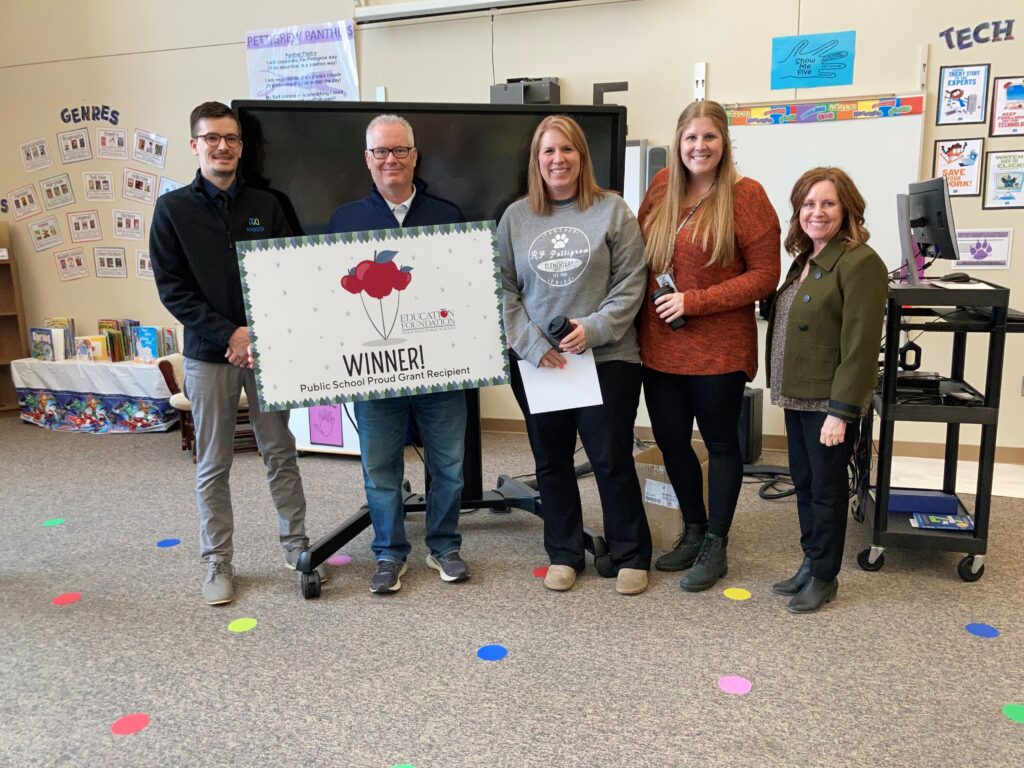
Karla Wahl and Jaclyn Lange were awarded $1,759.99 for their grant, “Uke Can Make a Difference.” They will purchase a classroom set of ukuleles that will benefit 450 third, fourth, and fifth graders. In their proposal, they wrote, “This project enhances the music curriculum by providing students with another opportunity to learn an instrument, which will hopefully spark a lifelong love of music.”
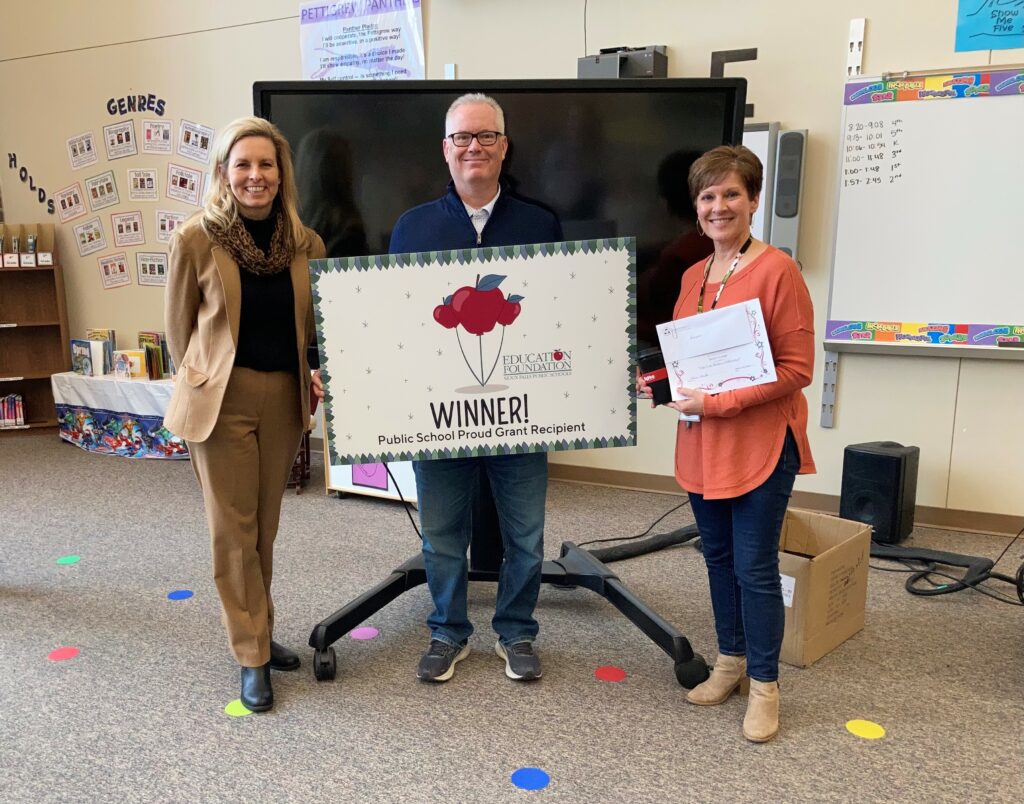
Melissa Smith received the fifth Public School Proud Grant. She will use $1,100 to purchase STEAM materials for second graders. Students will use magna tiles, STEM blocks, peg boards, books, and other tools for open-ended play. Melissa wrote, “STEAM activities allow for children to expand their knowledge. Exposing students to problem-solving, hands-on exploration, and their overall creative process right away in the morning will help set up a successful day for learning. Students will be able to collaborate with their peers on buildings, projects, or mini lessons. Allowing them a slightly less structured approach to do their own research or explore will allow them to see all the possibilities they can create or do.”
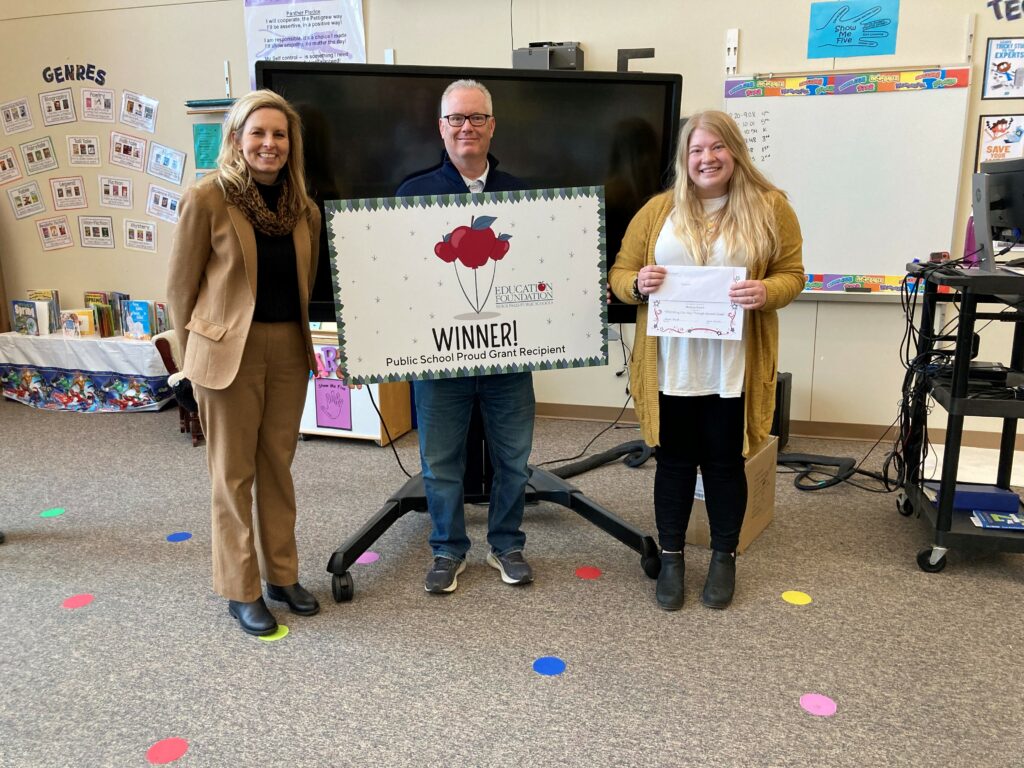
The last Public School Proud Grant at Pettigrew Elementary went to a group of winners. Kim Euchner, Mallory Begtrup, Erin Rudy, Sydney Jones, Kelly Gilbert, and Christine Hill will be using $1,850 to purchase two sensory paths for Early Childhood students. The first sensory path will take students on a bear hunt. They will have six different movement areas, including balancing and stretching. They will also use this tool to learn colors, numbers, and the alphabet. In an effort to incorporate more science vocabulary, a planet hop sensory path will take students on an out of this world journey, and they’ll be able to blast off from the sun all the way to Neptune. Sensory paths help students develop self-regulation skills and increase cognition.
